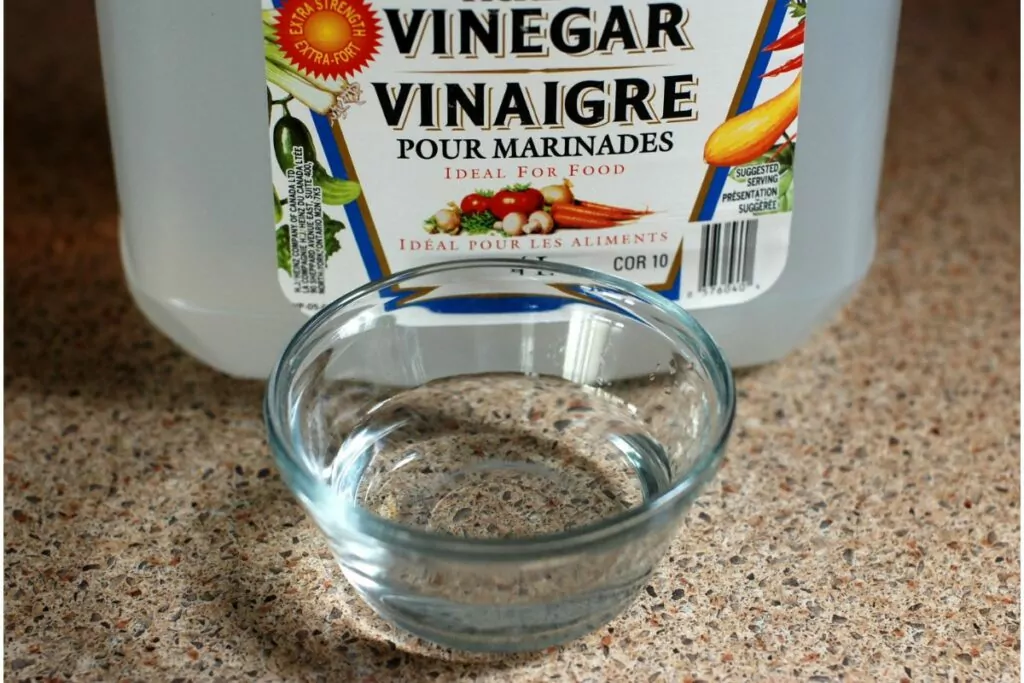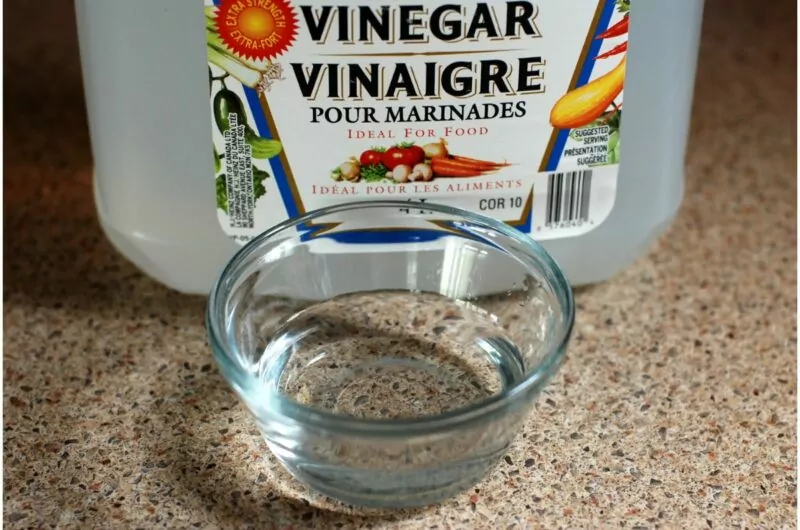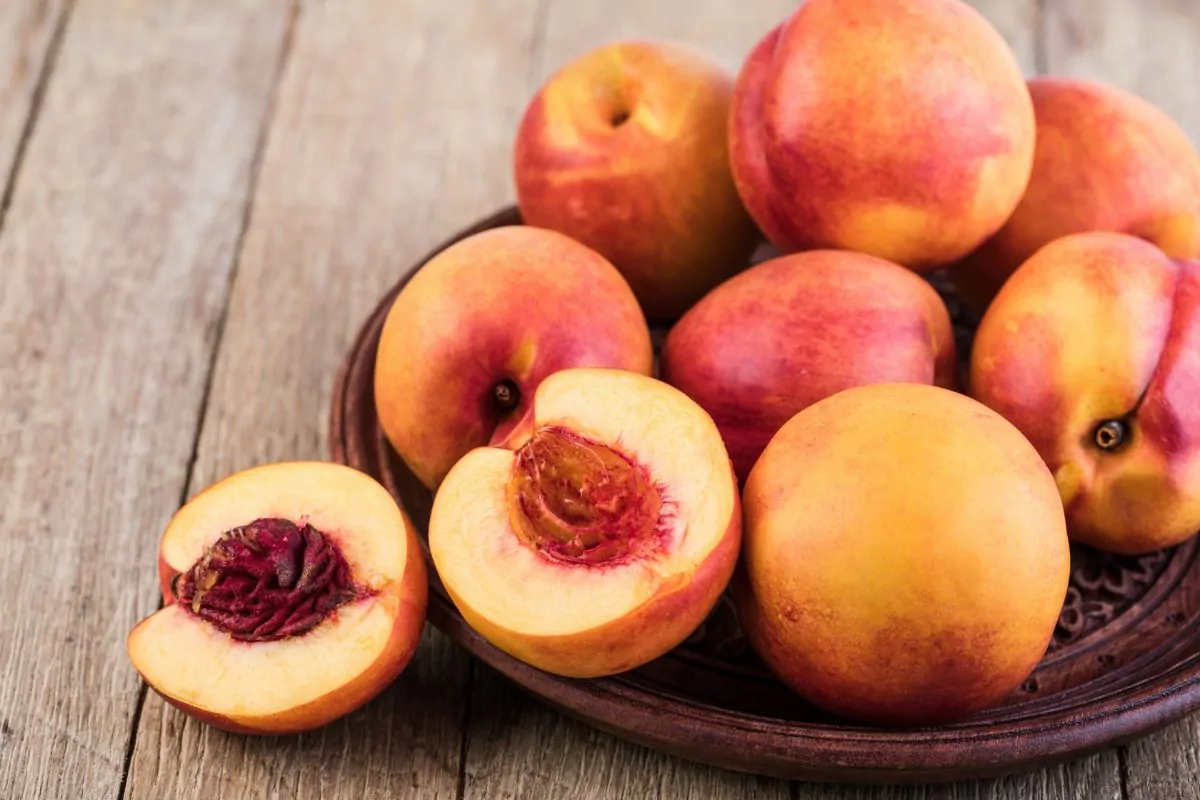When it comes to specific cuisines or recipes that you have planned on your cooking schedule, you usually need the best and most appropriate ingredients for the job.
For example, if you’re preparing a particular Asian recipe, then chances are you may need cane vinegar to help get the right flavor or consistency to your dish.
However, cane vinegar is also one of those ingredients that can be quite hard to source, especially if you don’t live near international stores or supermarkets.
So, what do you do if you need cane vinegar for a recipe, and it’s nowhere in your pantry?
Well, you can either fret about it, running around every supermarket within a 40-mile radius (okay, maybe not that far, but you get our point).
Or, you can try and use an appropriate substitute ingredient instead. Such as one of the several substitutes that we have outlined below!

What Is Cane Vinegar?
So, before we start digging through the cane vinegar alternatives that you can find out there, we should probably first explain what exactly cane vinegar is and tastes like. That way, you’ll be able to know what to look for in any alternative you might consider.
Can Sugar is a condiment and ingredient that is made by being boiled and fermented with yeast extracts, before being cooked into a syrupy form, then extracted into a distilled vinaigrette?
Cane vinegar is a particularly popular cooking ingredient in and around South East Asia, particularly in Filipino cooking, where sugarcane grows in abundance.
In terms of flavor, cane vinegar is best known for having a sharp and sour flavor to it, but not too strong to be overpowering, leaving a fresh aftertaste and mouthfeel.
These qualities make can vinegar a prime ingredient for many pickling and making sauces in other recipes, especially those with a sweet or sour flavor to them that use lime or lemon.
Thanks to its distinct, but not overpowering flavor, many kinds of meat are regularly marinaded with can vinegar.
It’s not uncommon to see pork or chicken, especially in adobo-style meals, where the natural heat of the spices and the flavor of the meat are balanced out by the fresh flavor of can vinegar.
What To Look For In A Substitute
So, if you’re looking for a good substitute, it needs to have a flavor that is mellow enough that it doesn’t overpower any other sauces or tastes that you’re trying to add to a dish. At the same time, it also isn’t going to be too weak to taste it on its own.
You’ll also want to consider if any of your substitutes are appropriate for pickling as well, a common use for this sugarcane-derived substance.
So, with those parameters set out, let’s dive into your available substitutes!
1. Balsamic Vinegar
While we don’t consider this list to be ranked in any particular order when it comes to best to worst cane vinegar substitutes, it’s probably appropriate that we are starting with arguably the best overall substitute for cane vinegar!
Balsamic vinegar is a popular condiment in many Southern European and Middle Eastern cuisines, especially when used in a tossed salad.
As far as flavors go, balsamic vinegar does have a surprisingly similar flavor profile. While being noticeably thicker and more syrupy, balsamic vinegar has a very similar strong initial flavor, while still being quite mellow overall.
It’s also a popular pickling medium for many vegetables and herbs that need to have that same sour yet sweet taste.
Plus, there’s also the fact that balsamic vinegar, while still not the easiest condiment to get a hold of, is probably still one of the more readily available vinaigrette that you’ll find on this list.
The only thing that you’ll need to consider is that you’ll only need to add ¾ tablespoon of balsamic vinegar for every tablespoon of cane vinegar you would use, thanks to it being a thicker and more viscous substance.
2. White Rice Wine Vinegar
It might be a long shot, as rice vinegar isn’t always available as other alternatives. But if you have a bottle handy in your pantry, then you can count your lucky stars!
Rice vinegar is typically used in East Asian and Japanese recipes, but also has plenty of uses outside of its traditional wheelhouse. Its mild flavor, and slightly sweet aftertaste, make it an almost ideal substitute when a recipe calls for cane vinegar.
Plus, it has a similar strength and consistency to it too, meaning that you can use it 1:1 when replacing cane with rice vinegar too.
Again, the only thing that holds it back is its overall rarity (although it is by no means difficult to find if you know where to look for it).
3. Apple Cider Vinegar
Its strong, fruity, and acidic flavor, might not make apple cider vinegar the first option that you think of when considering cane vinegar replacements. However, in the right hands, it is more than up to the task!
Apple cider vinegar is, as you would expect, made by mixing apples with yeast to ferment the natural sugars in the fruit, giving it its iconic flavor.
Its strong flavor is known to overpower many others when added from its concentrated form. However, when it has been diluted, you’ll find that the sweeter vinegar makes for a surprisingly good cane vinegar substitute.
Just don’t expect the same balmy texture in the mouth.
4. Malt Vinegar
Made from grains, and fermented with yeast, malt vinegar has a very similar fermenting process to not just beer, but also apple cider vinegar too, making it a surprisingly effective substitute for cane vinegar at the same time.
When watered down, malt vinegar does not overpower other sauces and ingredients, making it suitable for mixing.
Not only that, but malt vinegar is quite an easy type of vinegar to get a hold of in the US, making it a readily available option that you can pick. You might even have a small bottle in your pantry right now!
Just make sure that you are aware of or accommodate the somewhat nutty flavor to it, something that makes it quite different from cane vinegar in this instance.
5. Herb Vinegar
Herb vinegar is exactly what it sounds like, a vinegar that has a herb of some kind marinated in it, such as sage, thyme, basil, tarragon, parsley, or any other herb that you can think of.
They can be used in a wide range of different recipes and cuisines, thank the many flavors that they can have. They usually tend to be quite a gentle blend of herbal and vinegar flavors, however, making them a potential substitute.
Plus, you can use a 1:1 ratio for these types of vinegar, meaning no need to distill or guesstimate your measurements.
Because of the sheer variety of herbs that you can get in this dish, you’re going to need to know your herb flavor pretty well to determine what could make or break a recipe that normally uses cane vinegar!
6. Fruit Vinegar
You might not associate vinegar with a potential cocktail ingredient list. And yet, that’s exactly what fruit vinegar can be used for!
Alongside cocktails and alcoholic beverages, fruit vinegar is also used often in meal preparation, on account of its mild flavor.
Plus, its consistency makes it a perfect 1:1 ratio when compared to can vinegar, provided that you can accommodate the different flavors.
We wouldn’t recommend using this for pickling, however!
7. Red Rice Vinegar
You’ve seen the white version. Now you’ll get to see how the red rice wine vinegar compares!
You notice quite a lot of the same qualities between both white rice wine vinegar and red, but those flavors are noticeably stronger and more intense, so you’ll probably have to use a fraction of it if you’re cooking with it.
Can You Use Normal White Vinegar Instead Of Cane Vinegar?
In theory, it is possible to substitute your cane vinegar with white. However, it has a significantly stronger and more overpowering flavor to it, meaning that it has to be watered down significantly.
You only need around ¼ a tablespoon of white vinegar, when you would normally use 1 tablespoon of the cane variety.
There’s a reason we didn’t include it in the main list!
Final Notes
So, as you can see, it can be a little tricky to get the perfect substitute for can vinegar. That’s probably why it has such a particular use in cooking!
However, with the right changes, many of these alternatives will still serve your cooking well.
6 Cane Vinegar Substitutes You Can Use
Course: Substitutes4
servings30
minutes40
minutes300
kcalIngredients
Balsamic Vinegar
White Rice Wine Vinegar
Apple Cider Vinegar
Malt Vinegar
Herb Vinegar
Fruit Vinegar
Red Rice Vinegar
Directions
- Decide on what substitute you need
- Pick a substitute from the list above
- Read what you need to substitute with
- Create the recipe and enjoy
Recipe Video
https://www.youtube.com/watch?v=QE-y66rHEx8Video can’t be loaded because JavaScript is disabled: Understanding Balsamic Vinegar – What's the difference? (https://www.youtube.com/watch?v=QE-y66rHEx8)- What Exactly Do Chickpeas Taste Like? Is There A Distinct Flavor? - September 30, 2023
- Top 11 Low Carb Options at Sonic Drive-In for Keto Diet - September 30, 2023
- What Should You Serve Alongside Potato Salad? 8 Incredible Side Dishes - September 30, 2023











